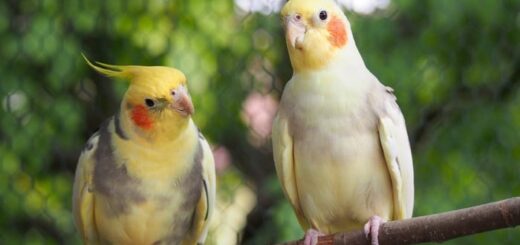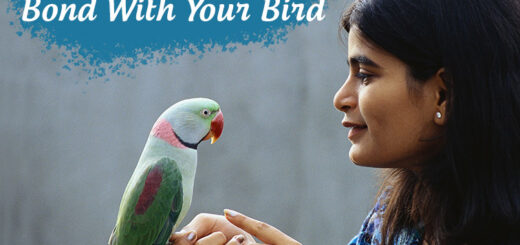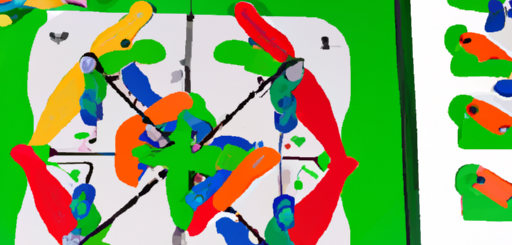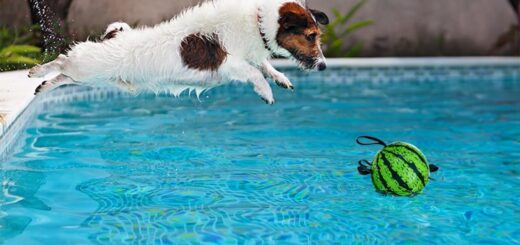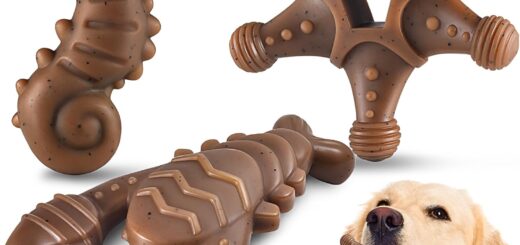The Right Diet For Your Bird: Nutrition Essentials For A Healthy Life
Are you looking to ensure that your bird lives a healthy and fulfilling life? Look no further! In this article, we will provide you with the essential information you need to know about the right diet for your feathered friend. From understanding the nutritional needs of your bird to finding the right balance of seeds, fruits, vegetables, and pellets, we will guide you on the path to ensuring that your bird receives the proper nutrition for optimal health and longevity. Say goodbye to guesswork and hello to a well-nourished and vibrant bird!
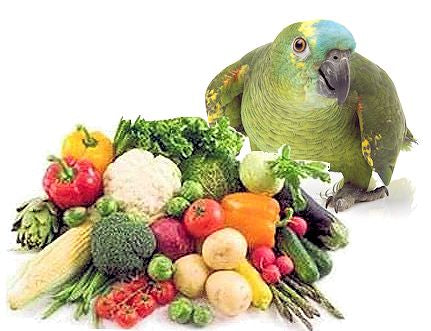
This image is property of cdn.shopify.com.
Click here to check out How To Build An Aviary!
The Importance of a Proper Diet for Birds
Understanding the Nutritional Needs of Birds
As a bird owner, you play a crucial role in ensuring the health and well-being of your feathered friend. One of the key factors that contribute to a bird’s overall health is a proper diet. Understanding the nutritional needs of birds is essential in providing them with the right balance of nutrients to thrive.
Birds have unique dietary requirements that are different from other pets. While some pet owners may assume that birds can simply survive on seeds alone, this is far from the truth. Birds require a variety of nutrients to maintain optimal health, including proteins, carbohydrates, fats, vitamins, minerals, and water.
The Impact of Diet on Bird Health
A bird’s diet has a profound impact on its overall health and longevity. Just like humans, birds require a balanced diet to support their bodily functions and immune system. A poor diet can lead to various health issues, such as obesity, malnutrition, weakened immune system, poor feather condition, and even organ failure.
On the other hand, a proper diet can provide birds with the energy they need to fly, sing, and be active. It can also improve their feather condition, enhance their breeding abilities, and promote overall vitality. By feeding your bird a well-balanced diet, you are giving them the best chance at a healthy and happy life.
The Benefits of a Balanced Diet
Feeding your bird a balanced diet has numerous benefits that go beyond just their physical health. A proper diet can improve their mental well-being, enhance their feather coloration, and even boost their intelligence. By meeting their nutritional needs, you are helping them thrive in captivity and enjoy a high quality of life.
A balanced diet can also strengthen your bond with your bird. When birds are properly nourished, they are more likely to exhibit sociable and playful behaviors. They will be more open to interacting with you and may even learn new tricks or mimic human speech more easily.
Essential Nutrients for Birds
Protein
Protein is an essential nutrient for birds as it plays a crucial role in muscle development, growth, and overall health. Birds derive protein from various sources, including insects, nuts, seeds, and legumes. When selecting protein sources for your bird, ensure they are safe and appropriate for their species.
Carbohydrates
Carbohydrates provide birds with the energy they need to carry out their daily activities. They are an important source of fuel, especially for birds with high metabolic rates. Good sources of carbohydrates for birds include whole grains, fruits, and vegetables.
Fats
Fats are a concentrated source of energy for birds and also play a role in maintaining healthy skin, feathers, and vital organ function. While fats should be included in a bird’s diet, it is important to choose healthy fats such as those found in nuts, seeds, and avocados.
Vitamins
Vitamins are vital for maintaining a bird’s overall health and well-being. Birds require a range of vitamins, including vitamin A, B vitamins, vitamin C, and vitamin D. These vitamins can be found in various foods, but it is important to ensure that your bird’s diet provides a balanced amount of each vitamin.
Minerals
Minerals are necessary for the proper functioning of a bird’s body. Important minerals for birds include calcium, phosphorus, iron, and potassium. Birds can obtain minerals from a variety of foods, including leafy greens, fruits, and mineral supplements formulated for birds.
Water
Water is the most essential nutrient for birds. It is necessary for digestion, hydration, temperature regulation, and overall bodily functions. Always ensure that your bird has access to fresh and clean water at all times.
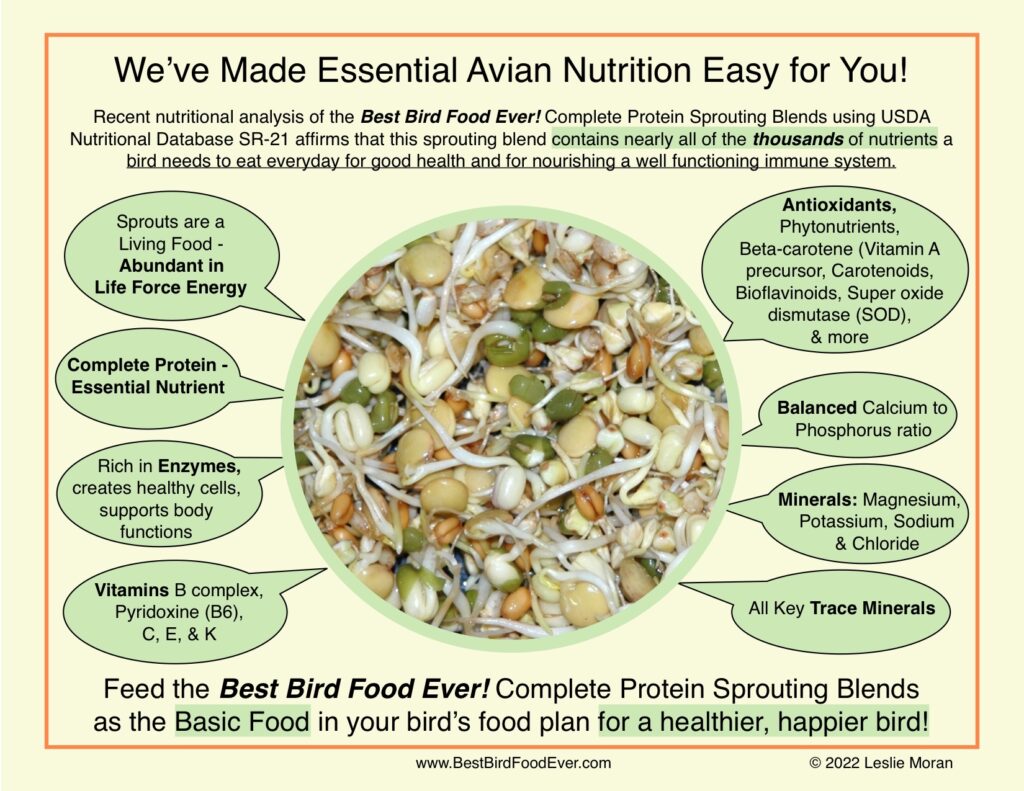
This image is property of www.bestbirdfoodever.com.
Click here to check out How To Build An Aviary!
Selecting the Right Bird Food
Commercial Bird Seeds
Commercial bird seeds are a popular choice of food for many bird owners. However, it is important to note that not all bird seeds are created equal. When selecting commercial bird seeds, opt for those that are formulated specifically for your bird species and that offer a variety of seeds to ensure a balanced diet.
Pellets and Extruded Diets
Pellets and extruded diets are another option for providing birds with a balanced diet. These diets are formulated to provide all the essential nutrients in a convenient and easy-to-serve form. Pellets and extruded diets are available in various flavors and sizes, making it easier to find the right one for your bird.
Fresh Fruits and Vegetables
Fresh fruits and vegetables are an excellent addition to a bird’s diet. They provide a wide range of vitamins, minerals, and antioxidants that can enhance their overall health. When offering fruits and vegetables to your bird, ensure that they are safe for consumption and free of toxins.
Supplementary Bird Foods
In addition to seeds, pellets, and fresh produce, there are various other supplementary bird foods that can be given to your feathered friend. These include mealworms, crickets, hard-boiled eggs, and cooked rice. However, it is important to ensure that these foods are safe and appropriate for your bird’s species.
Determining Proper Portion Sizes
Evaluating Energy Requirements
Determining the proper portion size for your bird involves evaluating their energy requirements. Factors such as size, activity level, and species-specific needs should be considered. Consult with your avian veterinarian to determine the appropriate caloric intake for your bird.
Feeding Frequency
Birds have a faster metabolism than many other pets, which means they require frequent meals throughout the day. Most birds benefit from having access to food throughout the day, with additional fresh fruits and vegetables offered once or twice daily. However, it is important to monitor their intake to avoid overfeeding or underfeeding.
Healthy Treats
Treats can be a great way to bond with your bird and provide them with additional nutritional benefits. However, it is important to choose healthy treats that complement their diet without adding excessive calories or compromising their nutritional balance. Examples of healthy treats include small pieces of fresh fruit, nuts, or specially formulated bird treats.
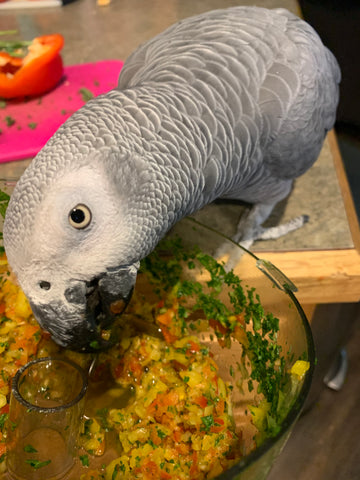
This image is property of cdn.shopify.com.
Avoiding Common Dietary Pitfalls
Feeding Exclusively on Seeds
Feeding a bird an exclusive seed diet is one of the most common dietary pitfalls. While seeds have nutritional value, they do not provide all the essential nutrients that birds need for optimal health. Birds on a seed-only diet are at risk of vitamin and mineral deficiencies, obesity, and other health issues.
Offering Inappropriate Human Foods
While it may be tempting to share your meals with your bird, it is important to avoid offering inappropriate human foods. Many human foods are toxic to birds or can be harmful due to additives, spices, or high levels of salt, sugar, or fat. Always consult with your avian veterinarian before introducing any human foods into your bird’s diet.
Neglecting Nutritional Variety
Birds require a diverse range of nutrients to thrive. Neglecting nutritional variety and feeding them the same foods every day can lead to deficiencies or imbalances in their diet. It is important to provide your bird with a wide variety of foods, including different fruits, vegetables, and protein sources, to ensure they receive all the essential nutrients they need.
Special Considerations for Different Bird Species
Seed-Eating Birds (Finches, Canaries)
Seed-eating birds, such as finches and canaries, have a natural tendency to prefer seeds. However, it is important to offer them a varied diet that includes other foods such as pellets, fresh produce, and small amounts of protein. This will help ensure they receive a balanced diet and avoid nutritional deficiencies.
Parrots and Parakeets
Parrots and parakeets have unique nutritional needs due to their larger size and higher energy requirements. They require a diet rich in fruits, vegetables, pellets, and protein sources. Additionally, parrots have a higher calcium requirement, so supplementation with calcium-rich foods or supplements may be necessary.
Insectivorous Birds (Hummingbirds, Orioles)
Insectivorous birds, such as hummingbirds and orioles, primarily feed on nectar or insects. To meet their nutritional needs, it is important to provide them with a diet that mimics their natural food sources. This can include nectar feeders filled with sugar water or commercially available nectar substitutes, as well as small insects such as mealworms or fruit flies.
Nectar-Eating Birds (Lories, Lorikeets)
Nectar-eating birds, such as lories and lorikeets, have highly specialized diets that primarily consist of nectar and pollen. These birds require a specific diet that includes nectar substitutes, commercially available lorikeet food, and fresh fruits. It is important to avoid feeding them foods high in iron or copper, as these minerals can be toxic to them.
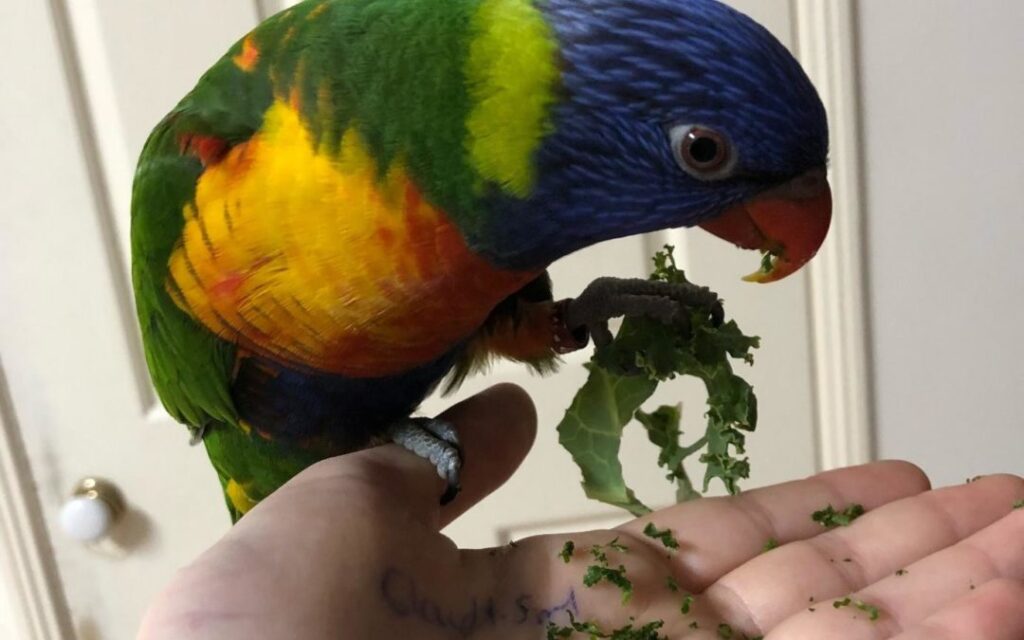
This image is property of bbevs.com.au.
The Role of Grit and Supplements
Providing Grit for Digestion
Grit refers to small, hard particles that birds consume to aid in the digestion of their food. While some birds, such as pigeons or doves, require grit due to their natural feeding habits, others, such as parrots, do not. Consult with your avian veterinarian to determine if providing grit is necessary for your bird’s specific dietary needs.
Supplementing with Calcium and Vitamin D3
Calcium and vitamin D3 are essential for a bird’s bone health and egg production. Birds that do not receive adequate calcium through their diet may develop calcium deficiency, which can lead to brittle bones or egg-laying problems. Consult with your avian veterinarian to determine if calcium and vitamin D3 supplementation is necessary for your bird.
Probiotics and Digestive Enzymes
Probiotics and digestive enzymes can be beneficial for birds with digestive issues or imbalances in their gut flora. These supplements can help promote a healthy digestive system and enhance nutrient absorption. However, it is important to consult with your avian veterinarian before introducing any supplements into your bird’s diet.
Making Dietary Changes Gradually
Introducing New Foods Slowly
When introducing new foods into your bird’s diet, it is important to do so gradually. Birds can be resistant to change and may not readily accept new foods. Start by offering small amounts of the new food alongside their familiar diet. Over time, gradually increase the proportion of the new food to encourage acceptance.
Monitoring Bird’s Response to Diet Changes
As you make dietary changes for your bird, closely monitor their response to these changes. Observe their appetite, energy levels, feather condition, droppings, and overall well-being. If you notice any abnormal changes, consult with your avian veterinarian for further guidance.
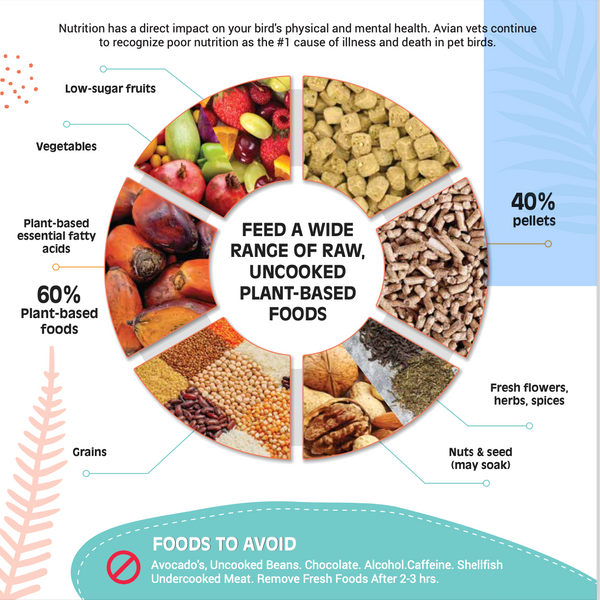
This image is property of cdn.shopify.com.
Monitoring and Assessing Bird Health
Maintaining a Healthy Weight
Maintaining a healthy weight is crucial for a bird’s overall health. Obesity can lead to various health issues and can significantly reduce a bird’s quality of life. Regularly monitor your bird’s weight and body condition. If necessary, consult with your avian veterinarian for guidance on establishing a healthy weight management plan.
Evaluating Feather Condition
Feather condition is a visual indicator of a bird’s health. Healthy feathers should be clean, vibrant, and free of signs of damage or abnormalities. If your bird’s feathers are dull, continuously molting, or showing signs of feather plucking, it may indicate a nutritional deficiency or underlying health issue. Consult with your avian veterinarian for proper evaluation and treatment.
Monitoring Waste and Digestive Health
Monitoring your bird’s waste is an important aspect of assessing their overall health. Changes in color, consistency, or frequency of droppings can indicate digestive issues, infections, or other health problems. Regularly inspect your bird’s droppings and be alert to any changes that may require veterinary attention.
Consulting with an Avian Veterinarian
Importance of Regular Check-Ups
Regular check-ups with an avian veterinarian are vital for ensuring your bird’s ongoing health and well-being. During these visits, your veterinarian can assess your bird’s overall health, evaluate their diet, and provide guidance on any necessary dietary adjustments. Regular check-ups also allow for early detection and treatment of any potential health issues.
Seeking Nutritional Advice
If you have any concerns or questions about your bird’s diet, it is essential to seek the advice of an avian veterinarian. They have the expertise and knowledge to provide you with the most accurate and up-to-date information on bird nutrition. Your veterinarian can help develop a customized diet plan that meets the specific needs of your bird.
In conclusion, providing your bird with a proper diet is essential for their overall health and well-being. Understanding their nutritional needs and offering a balanced variety of foods will ensure that they thrive in captivity. By following the guidelines outlined in this article and consulting with your avian veterinarian, you can provide your bird with the best possible diet for a long and happy life.
